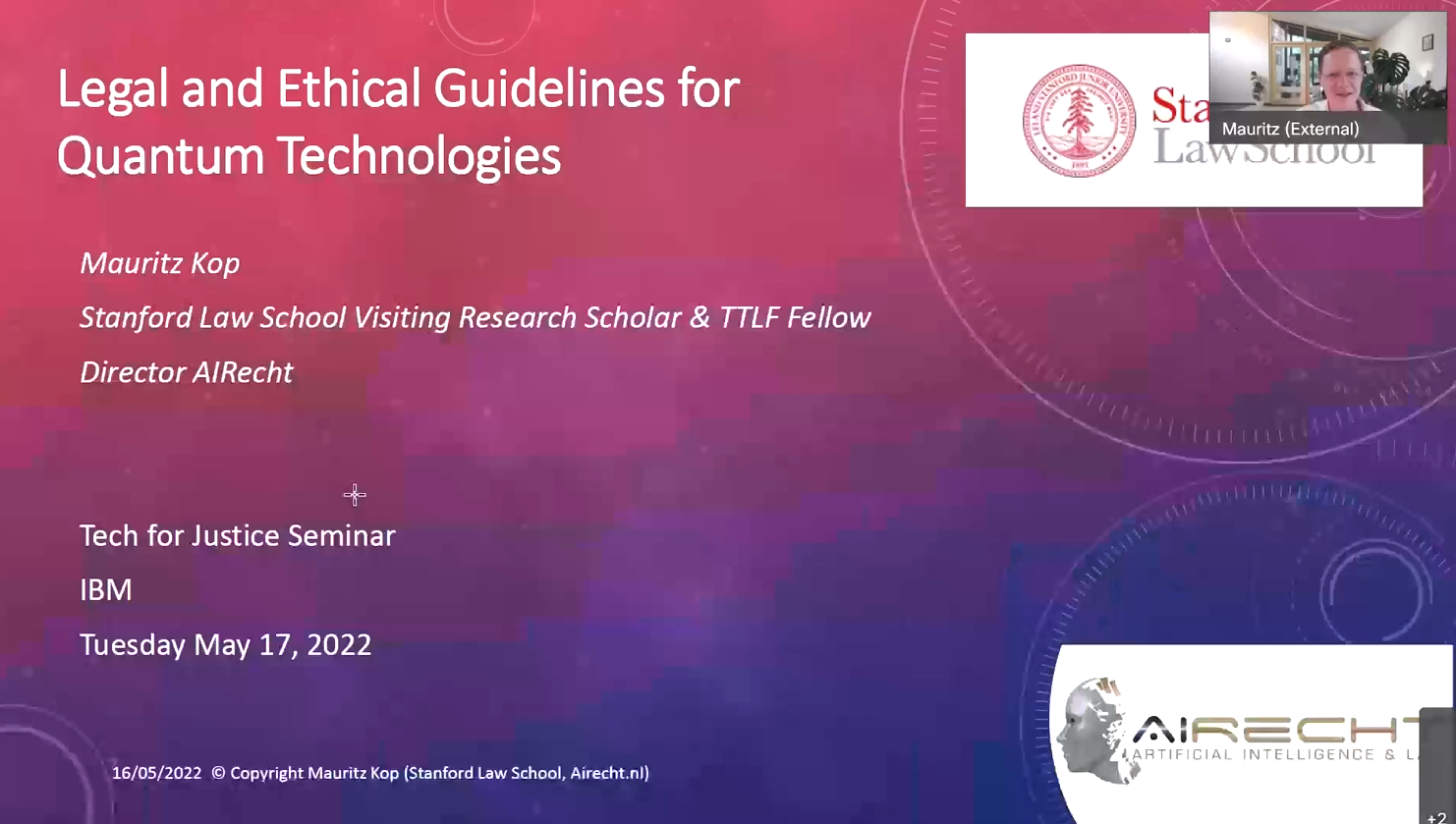Mauritz Kop, founder of the Stanford Center for Responsible Quantum Technology (RQT) and a guest professor at the US Air Force Academy (USAFA), has been appointed a senior fellow at the Centre for International Governance Innovation (CIGI), a leading Canadian G7 think tank with a global reputation for impactful research and policy advice. This fellowship marks a significant new chapter in Professor Kop's work, allowing for a deeper dive into the intricate and rapidly evolving nexus of quantum technology, artificial intelligence (AI), intellectual property (IP) law, competition policy, and national security. The initial project will focus on developing a comprehensive roadmap for navigating this complex landscape, building on previous engagement with CIGI and long-standing academic and professional connections with Canada.
Mauritz Kop Appointed Senior Fellow at CIGI: A New Chapter in Quantum Governance and Global Security
This CIGI senior fellow appointment is not just a personal honour, but a testament to the growing global recognition of the urgent need for innovative governance models to steer the development of powerful dual-use technologies towards beneficial outcomes for humanity. The challenges are immense, but so are the opportunities. In a world grappling with geopolitical instability and the disruptive potential of emerging technologies, CIGI’s mission to build bridges from knowledge to power has never been more critical. Kop is thrilled to contribute to this mission and to collaborate with CIGI’s distinguished team of experts.
Building on a Foundation: The Dual-Use Project and Previous Engagements
Professor Kop's journey with CIGI began prior to this fellowship, with a seminar delivered on the governance of dual-use quantum technologies. That lecture, titled “Responsible Quantum AI Governance: From Ethical Principles to Global Frameworks,” set the stage for the work he is about to undertake. In that presentation, he argued that we are approaching a “Quantum Event Horizon”—a critical juncture beyond which our ability to shape the trajectory of advanced quantum and AI systems may be irrevocably lost. The core of Kop's argument was that traditional governance models and diplomatic efforts are insufficient to address the systemic challenges posed by a global, high-stakes race for quantum supremacy.
The seminar explored the necessity of a multi-layered governance strategy. This includes not only the development of robust international legal frameworks and oversight bodies, drawing inspiration from nuclear non-proliferation treaties, but also the integration of “Quantum-Resistant Constitutional AI” to hardwire universal values into the technology itself. This dual approach, grounded in the principles of responsible innovation, is essential to mitigate the risks of misuse by state and non-state actors, and to ensure that these technologies serve to enhance, rather than undermine, democratic societies.
The positive reception to these ideas and the stimulating discussions that followed with the CIGI community laid the groundwork for this senior fellowship. It became clear that there was a shared understanding of the stakes involved and a common commitment to forging a path towards a safe and equitable quantum future. This fellowship provides the ideal platform to transition from articulating these principles to developing concrete, actionable policy recommendations.
A New Frontier: IP, Competition Law, Quantum, Dual-Use, and National Security
Professor Kop's first project as a CIGI Senior Fellow will be an in-depth analysis of the critical nexus between quantum technology, AI, IP policy, and national security strategy. The convergence of quantum and AI capabilities presents unprecedented challenges for global innovation and strategic stability, most notably the looming threat of “Q-Day,” when a sufficiently powerful quantum computer could break most of the public-key cryptography that underpins our digital world.
This project will draw lessons from historical precedents, particularly the governance of nuclear technology, to inform the development of novel frameworks for quantum governance. A key component of the research will be a comparative analysis of quantum IP strategies across the dominant tech blocs, examining how different approaches to patents, trade secrets, and state secrets are shaping the global quantum race.
Meer lezen

